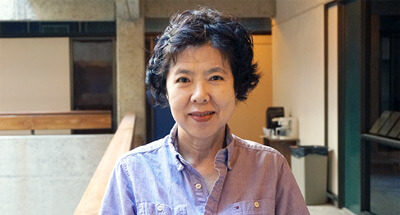
Yean-Ju Lee
Associate Professor
Email: yjlee@hawaii.edu
Background
The dynamic social context of Korea led me to study the society. The issues of family and gender relations posed challenges to me. With rapid economic and social changes, there were many puzzles and contradictions. Training in my undergraduate and graduate programs focused on the areas of demography and family studies and taught me the importance of finding underlying regularities behind observed diversities or irregularities using quantitative methods. More recently I have also used qualitative methods, to grasp some new ideas and insights.
Education
- PhD, Sociology, University of Wisconsin-Madison, 1990
- MS, Sociology, University of Wisconsin-Madison, 1988
- MS, Sociology, Iowa State University, Ames, Iowa, 1981
- MS, Home Economics, Seoul National University, 1980
- BS, Home Economics and Sociology, Seoul National University, 1978
Courses
- SOC 353: Survey of Sociology of Aging
- SOC 452: Marriage and Family: A Feminist Perspective
- SOC 476: Social Statistics
- SOC 476L: Social Statistics Laboratory
- SOC 605: Statistics for Regression Analysis
- SOC 605L: Regression Analysis Laboratory
- SOC 705: Advanced Statistics
- SOC 719: Comparative Family and Gender
Research
My teaching has focused on: quantitative methods and statistics, sociology of the family, social gerontology, and population studies. East Asian societies have been the focus of my research, and the issues addressed include union formation and dissolution, intergenerational resource transfers, health and economic disparities among the elderly, and conflicts between work and family roles. Recently, I have been working on a book project, exploring why marriages break down in Korea.
Community Engagement
As the chair or a member of the Outreach Committee at the Center for Korean Studies, I have organized workshops designed to help immigrant parents raising children in Hawaii. In the workshops held during the past several years, immigrant parents, youth of secondary school ages, and guest speakers were invited to discuss various issues that challenge the youth and their parents.